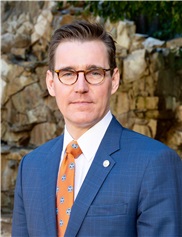Grants Funded
ASPS/PSF leadership is committed to continuing to provide high levels of investigator-initiated research support to ensure that plastic surgeons have the needed research resources to be pioneers and innovators in advancing the practice of medicine.
Research Abstracts
Search The PSF database to have easy access to full-text grant abstracts from past PSF-funded research projects 2003 to present. All abstracts are the work of the Principal Investigators and were retrieved from their PSF grant applications. Several different filters may be applied to locate abstracts specific to a particular focus area or PSF funding mechanism.
Single-agent Immunomodulation in Pediatric Craniofacial CTA
Principal Investigator
Joseph Losee MD
Joseph Losee MD
Year
2011
2011
Institution
University of Pittsburgh
University of Pittsburgh
Funding Mechanism
Focus Area
Abstract
Composite tissue allotransplantation (CTA) is dramatically expanding the capabilities of reconstructive plastic surgeons. Pediatric craniofacial patients offer unique reconstructive challenges as the surgeon must account for growth and development in designing immunosuppressive regimens and operative plans. We endeavor to employ our institution's novel immunomodulatory monotherapy in the pediatric setting in an effort to minimize immunosuppression-associated morbidities thus rendering the risk/benefit ratio of CTA favorable in this population. An understanding must be developed of a craniofacial transplant's potential to facilitate normal craniofacial growth in the pediatric recipient. The Specific Aim of this study is to demonstrate that immunomodulatory monotherapy and craniofacial transplantation is compatible with normal somatic development and craniofacial growth in skeletally immature recipients. We hypothesize that allogeneic Le Fort II transplantation in a juvenile rat model using immunomodulatory monotherapy will result in normal somatic development and craniofacial growth. We will begin by assessing the effect of immunomodulatory monotherapy on juvenile rat somatic growth and craniofacial development in comparison to control data. Next, craniofacial growth will be compared between controls and juvenile rats undergoing syngeneic Le Fort II CTA; as this group will not require immunomodulation, it will serve as a surgical control. Finally, the combined effects of allogeneic Le Fort II CTA and immunomodulatory monotherapy on craniofacial growth will be assessed by comparing juvenile rats undergoing this procedure to controls. The potential impact of this work on Plastic Surgery is twofold. First, it would provide early data for the suitability of immunomodulatory monotherapy in the pediatric setting. Second, it would serve as proof of concept that craniofacial transplantation is compatible with normal craniofacial growth and development.
Composite tissue allotransplantation (CTA) is dramatically expanding the capabilities of reconstructive plastic surgeons. Pediatric craniofacial patients offer unique reconstructive challenges as the surgeon must account for growth and development in designing immunosuppressive regimens and operative plans. We endeavor to employ our institution's novel immunomodulatory monotherapy in the pediatric setting in an effort to minimize immunosuppression-associated morbidities thus rendering the risk/benefit ratio of CTA favorable in this population. An understanding must be developed of a craniofacial transplant's potential to facilitate normal craniofacial growth in the pediatric recipient. The Specific Aim of this study is to demonstrate that immunomodulatory monotherapy and craniofacial transplantation is compatible with normal somatic development and craniofacial growth in skeletally immature recipients. We hypothesize that allogeneic Le Fort II transplantation in a juvenile rat model using immunomodulatory monotherapy will result in normal somatic development and craniofacial growth. We will begin by assessing the effect of immunomodulatory monotherapy on juvenile rat somatic growth and craniofacial development in comparison to control data. Next, craniofacial growth will be compared between controls and juvenile rats undergoing syngeneic Le Fort II CTA; as this group will not require immunomodulation, it will serve as a surgical control. Finally, the combined effects of allogeneic Le Fort II CTA and immunomodulatory monotherapy on craniofacial growth will be assessed by comparing juvenile rats undergoing this procedure to controls. The potential impact of this work on Plastic Surgery is twofold. First, it would provide early data for the suitability of immunomodulatory monotherapy in the pediatric setting. Second, it would serve as proof of concept that craniofacial transplantation is compatible with normal craniofacial growth and development.
Biography
 Joseph E. Losee, MD, FACS, FAAP is an Associate Professor of Surgery (Plastics) and Pediatrics and Program Director, Plastic Surgery Residency at the University of Pittsburgh Medical Center. He serves as the Chief of Plastic Surgery at the Children's Hospital of Pittsburgh. Dr. Losee's clinical and translational research interests include craniosynostosis and skull reconstruction in the pediatric population.
Joseph E. Losee, MD, FACS, FAAP is an Associate Professor of Surgery (Plastics) and Pediatrics and Program Director, Plastic Surgery Residency at the University of Pittsburgh Medical Center. He serves as the Chief of Plastic Surgery at the Children's Hospital of Pittsburgh. Dr. Losee's clinical and translational research interests include craniosynostosis and skull reconstruction in the pediatric population.
 Joseph E. Losee, MD, FACS, FAAP is an Associate Professor of Surgery (Plastics) and Pediatrics and Program Director, Plastic Surgery Residency at the University of Pittsburgh Medical Center. He serves as the Chief of Plastic Surgery at the Children's Hospital of Pittsburgh. Dr. Losee's clinical and translational research interests include craniosynostosis and skull reconstruction in the pediatric population.
Joseph E. Losee, MD, FACS, FAAP is an Associate Professor of Surgery (Plastics) and Pediatrics and Program Director, Plastic Surgery Residency at the University of Pittsburgh Medical Center. He serves as the Chief of Plastic Surgery at the Children's Hospital of Pittsburgh. Dr. Losee's clinical and translational research interests include craniosynostosis and skull reconstruction in the pediatric population.